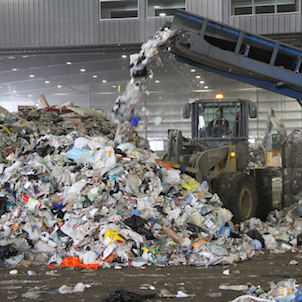
Waste Management 2014
How can emissions from waste be reduced?
The IPCC projects that waste disposal will account for more than 1.6 gigatons (Gt) carbon dioxide equivalent (Gt CO2-eq) in greenhouse gas (GHG) emissions in 2030, 3 percent of the global total. This includes emissions from the disposal of liquid waste through sewage treatment and solid waste through landfills and incineration. This contest seeks proposals that address any aspect of reducing GHG emissions from waste. Click here for contest details
16
Proposals
Cement Production is the 4th global fossil carbon emisor and it´s time to reduce and recycle debris for healthy environment and reduce GHG
Uncontrolled greenhouse gas emission from sewage waste will be reduced by using simple technology like utilizing this waste in making biogas
A social platform that helps motivates users to recycle more by tracking user progress with a point system, and giving reminders.
ECOSAN: a water-conserving and nutrient-recycling system for collection and use of human urine and composted fecal matter in agriculture
Converting various wastes into biodiesel, electricity and heat at wastewater treatment plants to minimize waste disposal and GHG emission
To effectively address the growing waste management issue in Indian cities by enabling people to recycle the wastes diverted to landfills
Energy Security in 21st Century needs Hybrid model with; Top-down and bottom-up approach to meet environmental and economic Sustainability.
Traditional methods of waste management are expensive, pollute environment and emit GHGs. Vermicomposting can do this with amazing results.
Reduction in noxious air pollution raises surrounding land values, this increased value could be captured by polluters.
The idea is to create a non-profit partnership between waste managers and lye producers which reduces the cost and offensive odors.
Thermal energy & kinetic energy conversion of the Gulfstream to lower Co2 GHG emissions anywhere between 300ppm/350 ppm in 20 years.
Industrial plants waste tons of water that is still hot and has a lot of energy left in it. My idea converts that waste heat to electricity.
The key idea behind this proposal is to introduce value to waste, turn it into opportunity. How may a hazardous material can save life.
This is not just another recycling program. Combining prisons with landfills, EVERYTHING is sorted. Possibly emptying old landfills too.
Recycling is based off the protocol developed in the 1980s. Times have changed.
Smaller cities should contract one garbage hauler rather than have several companies' trucks retracing one another's routes.